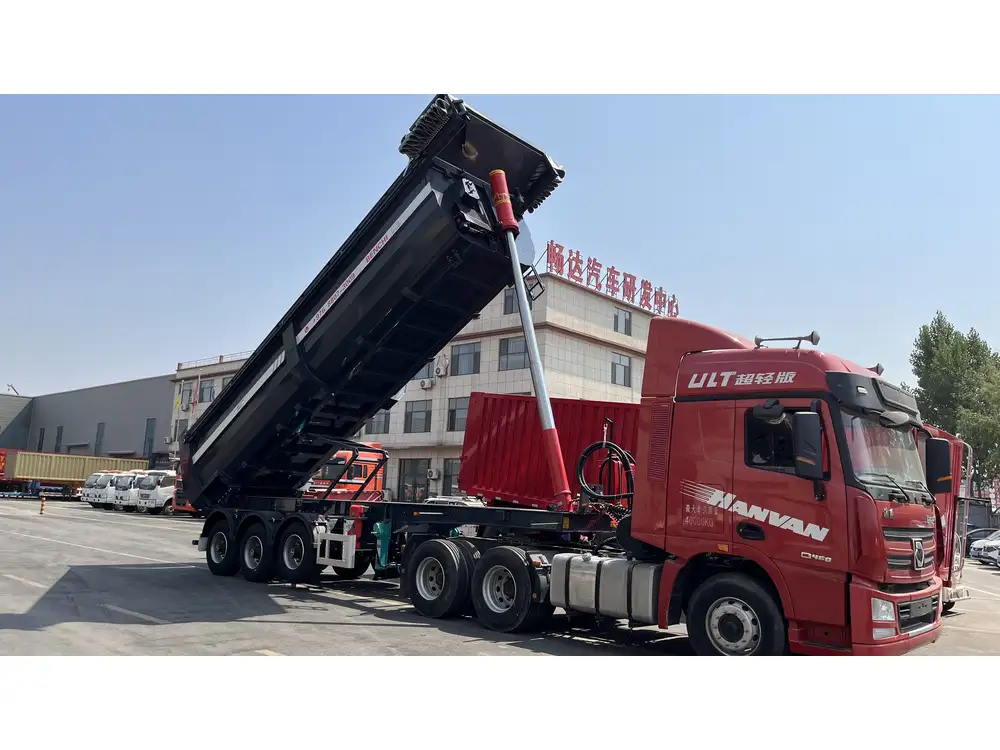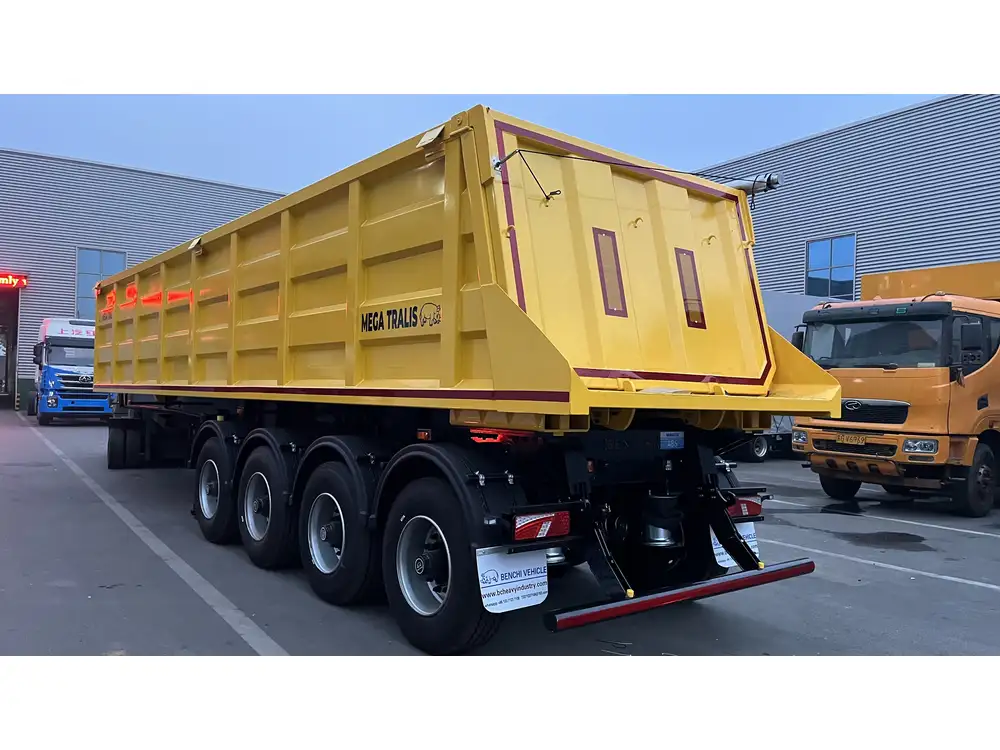When it comes to logistics and transportation, the weight of semi truck trailers plays a crucial role in compliance, safety, and efficiency. Understanding the specific weight of a semi truck trailer by itself—and how that weight interacts with various other factors such as cargo, regulations, and truck specifications—is essential for operators in the trucking industry. In this article, we dig deep to explore the various elements that influence semi truck trailer weights, the importance of knowing these weights, and how they affect your transportation operations.
Table of Contents
- Introduction to Semi Truck Trailers
- Average Weight of Different Types of Semi Truck Trailers
- 2.1 Flatbed Trailers
- 2.2 Refrigerated Trailers
- 2.3 Dry Van Trailers
- 2.4 Tank Trailers
- Factors Influencing Trailer Weight
- 3.1 Materials Used
- 3.2 Trailer Length and Design
- 3.3 Additional Features
- Importance of Knowing Your Trailer Weight
- How to Measure Your Trailer’s Weight
- What to Do if Your Gross Vehicle Weight Exceeds Limits
- Final Thoughts
1. Introduction to Semi Truck Trailers
Semi truck trailers are vital components in the transportation and logistics industry, used for moving goods across vast distances. They are designed to be towed by a tractor unit, playing a critical role in the overall weight of a commercial vehicle. As regulations governing weight limits become more stringent, understanding how much a semi truck trailer weighs by itself can determine compliance and efficiency for logistics providers.

2. Average Weight of Different Types of Semi Truck Trailers
The weight of semi truck trailers is not uniform; it varies significantly based on the type and design of the trailer. Below, we outline the average weights for common trailer types:
2.1 Flatbed Trailers
Flatbed trailers are utilized primarily for transporting heavy machinery, construction materials, and other bulky items. The average weight of a flatbed trailer ranges from 4,000 to 6,000 pounds, depending on the materials used and the included features.
2.2 Refrigerated Trailers
Refrigerated trailers, or reefers, maintain temperature-controlled environments for transporting perishables. They tend to weigh more than standard trailers due to insulation and refrigeration units, averaging around 10,000 to 15,000 pounds.

2.3 Dry Van Trailers
Dry vans are the most common type of semi truck trailers, designed for general freight. Their weight typically falls between 10,000 and 14,000 pounds. These trailers are fully enclosed, providing protection against the elements.
2.4 Tank Trailers
Tank trailers are used for transporting liquids such as fuel, chemicals, and food products. Depending on size and design, they weigh approximately 10,000 to 12,000 pounds when empty.
| Trailer Type | Average Weight (lbs) |
|---|---|
| Flatbed | 4,000 – 6,000 |
| Refrigerated | 10,000 – 15,000 |
| Dry Van | 10,000 – 14,000 |
| Tank | 10,000 – 12,000 |
3. Factors Influencing Trailer Weight
Understanding the factors that contribute to the overall weight of a semi truck trailer can assist owners and operators in making informed decisions regarding their fleets.

3.1 Materials Used
The construction materials used in trailers significantly affect their total weight. Common materials include:
- Steel: While durable, it adds considerable weight.
- Aluminum: Lightweight and resistant to corrosion, making it a popular choice for many modern trailers.
- Composite Materials: Increasingly employed for specialized applications, they provide strength without excessive weight.
3.2 Trailer Length and Design
The regulatory guidelines specify maximum allowable lengths for different types of trailers. Longer trailers can often accommodate more cargo but will also weigh more due to increased length and structural requirements.
3.3 Additional Features
Special features can add weight to semi truck trailers. These may include:
- Additional Axles: More axles distribute weight but increase overall weight.
- Lift Gates: Handy for loading and unloading but add to the trailer’s total weight.
- Aerodynamic Fairings: While designed to reduce drag and improve fuel efficiency, these components also contribute to total weight.

4. Importance of Knowing Your Trailer Weight
Knowledge of the semi truck trailer weight is vital for various reasons:
Compliance with Regulations: Different regions have specific weight limits enforced by law. Knowing your trailer’s weight helps avoid fines.
Safety: Overloaded trailers can lead to accidents, affecting not just the driver but also public safety.
Efficiency in Operations: Understanding weight allows for optimal load distribution, enhancing fuel economy and prolonging vehicle life.
5. How to Measure Your Trailer’s Weight
To ensure compliance and safety, determining your trailer’s weight can be done easily through several methods:
Weighbridge Scale: The most accurate method, weighing your vehicle on a commercial grade weighbridge ensures you know the exact weight.
Portable Weigh Scale: A more convenient option, portable scales can give quick readings for trailers if weighbridges are inaccessible.
On-Board Weight Measurement Systems: Advanced systems integrated into some modern trucks provide real-time weight readings.
6. What to Do if Your Gross Vehicle Weight Exceeds Limits
Re-Evaluate Load Distribution: Perhaps the load is not evenly distributed. Shifting its position can help comply with weight regulations.
Unload Optional Cargo: If you are close to the weight limit, consider removing non-essential items.
Consult with a Professional: Regular inspection and consultation can provide insights on compliance with local regulations.
Upgrade Your Truck/Trailer: If consistently overweight, consider investing in heavier-duty models designed for higher weight capacities.

7. Final Thoughts
The weight of semi truck trailers is paramount in ensuring compliance with regulations, enhancing safety, and optimizing operational efficiency. By understanding how much a semi truck trailer weighs by itself—and the varying weights across different trailer types—operators in the trucking industry can make informed decisions that better protect their investments. Awareness of trailer weights allows fleet operators to remain compliant, improve load management, and enhance safety protocols within the industry.
With the complexities and challenges that come with the transportation of goods, making informed decisions based on thorough weight knowledge can be the difference between operational efficiency and potential liabilities. Always stay updated on regulations and continuously assess your equipment to ensure optimal performance. In the dynamic world of logistics, knowledge truly is power.



